By Francesca Morselli (DANS-KNAW)
Introduction
The FAIRsharing initiative has worked in the last years to make FAIR resources (developed by the research community) available from a unique location to researchers and research data practitioners.
FAIRsharing is developed by the University of Oxford, and specifically within the Data Readiness Group, a team of data researchers that also created the FAIR Cookbook (for life sciences). The realisation of FAIRsharing is also possible thanks to the collaboration with the Bodleian Library who contributed the DOI generation and the access for the ORCID members-only API.
FAIRsharing can be best described as a network of stakeholders comprising (data) publishers, universities, scholarly networks and communication advocates covering all fields of scholarly research. Among the contributors, FAIRsharing comprises Dutch organisations such as, among others, DANS-KNAW, 4TU, and the University of Amsterdam.
The aim of this blogpost is to describe the purpose and structure of FAIRsharing. We think this resource might be very useful for researchers when writing their Data Management Plan (DMP). More details on how to use FAIRsharing will be provided in the next sections.
What is the purpose of FAIRsharing?
The aim of such a network is to provide a space to make community-developed standards, databases and data policies accessible to the research community. The team behind FAIRsharing provides in particular curated information on three main types of resource: 1. Standards, 2. Databases and 3. Policies.
As of today FAIRsharing makes accessible 1645 standards, 1965 databases and 160 policies across all the domains of scholarly research (natural sciences, engineering, social sciences and humanities)
How and when to look for resources in FAIRsharing?
Resources can be accessed by selecting the main typology (policy, databases or standards) from the homepage. All the resources can also be selected according to the organisation (that created the data) or the collection they belong to. Another way to look for resources is through a very intuitive visualisation that divides the content according to the discipline it belongs to, by browsing by subject.
In the collection of FAIRsharing you can also select resources related to the Social Sciences (445).
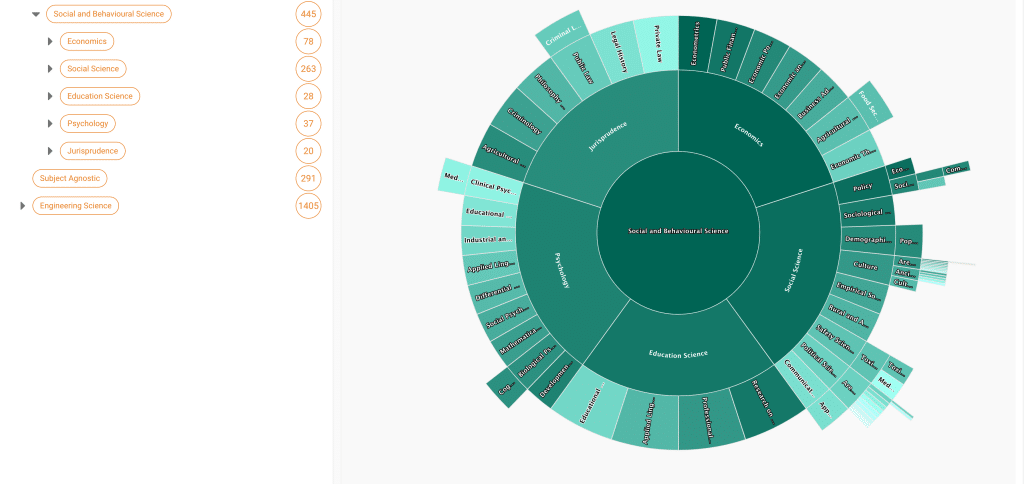
These subject-related resources can be filtered according to the resource type (standard, policy, database).
Let’s have an in depth-look into one of the resources: the CESSDA Vocabulary (Fig.2) This record links to a page that lists vocabularies developed by CESSDA: the CESSDA Vocabulary Service (Fig.3).
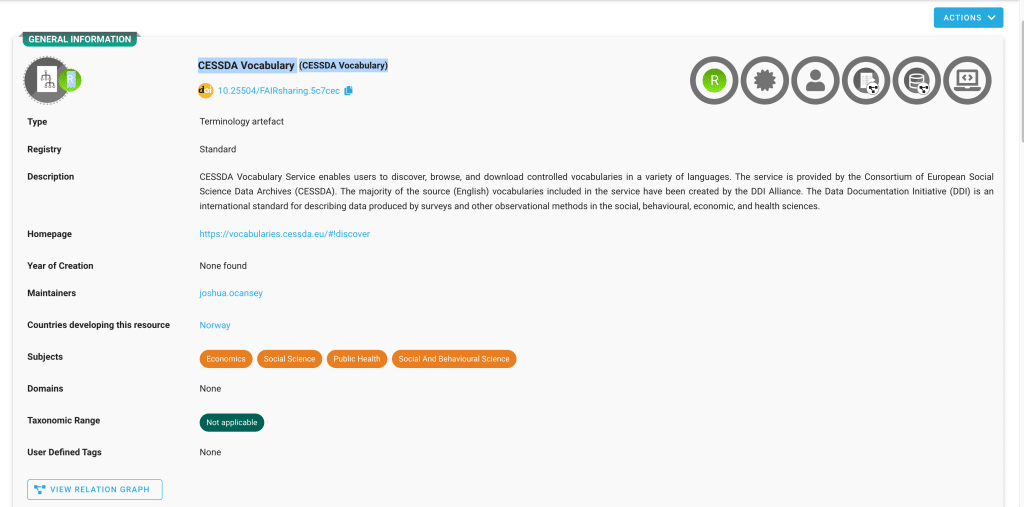
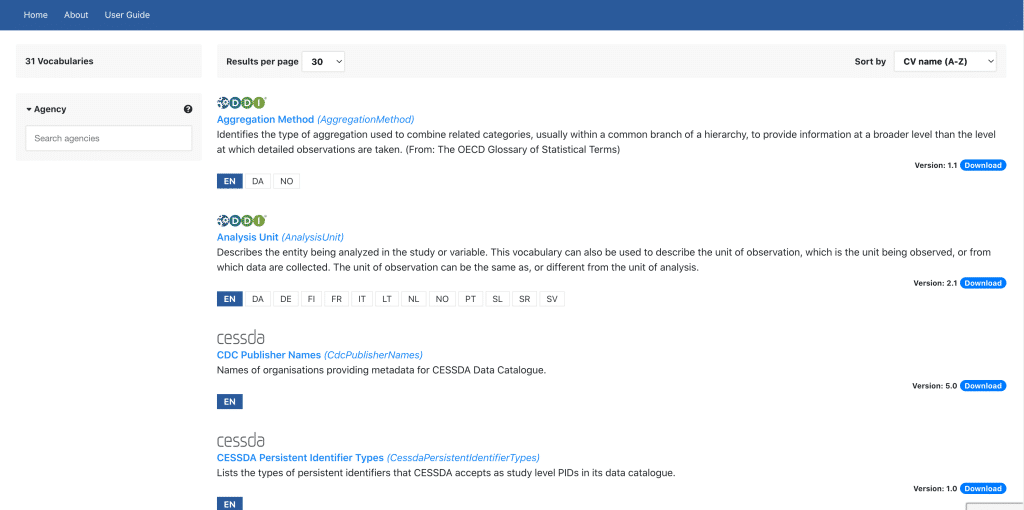
This page can be useful to researchers in many ways; for example, by looking at which country code to use during the encoding of her/his research data. The application of a standardised country code (Fig.4) will help the research to be more Interoperable with other data and publications, therefore more FAIR.
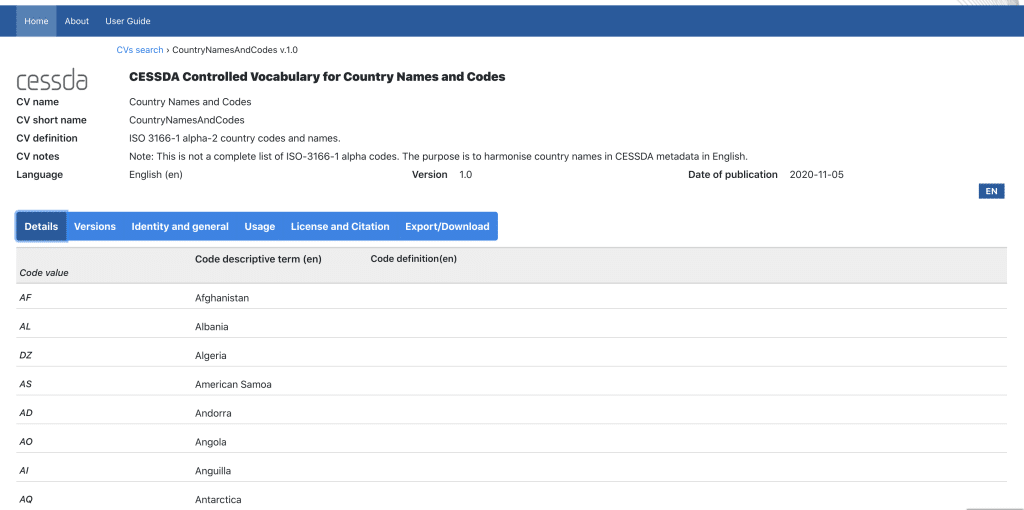
Every resource published in FAIRsharing (in this case the “CESSDA Vocabulary”) is assigned a DOI and is marked as “ready” – R, which means that it can be accessed without restriction and is maintained by the creating institution. The name of a contact person is also listed. Of particular interest for the researcher and data support professionals can be the related content of that record that is also listed, in this case documentation about related standards and databases.
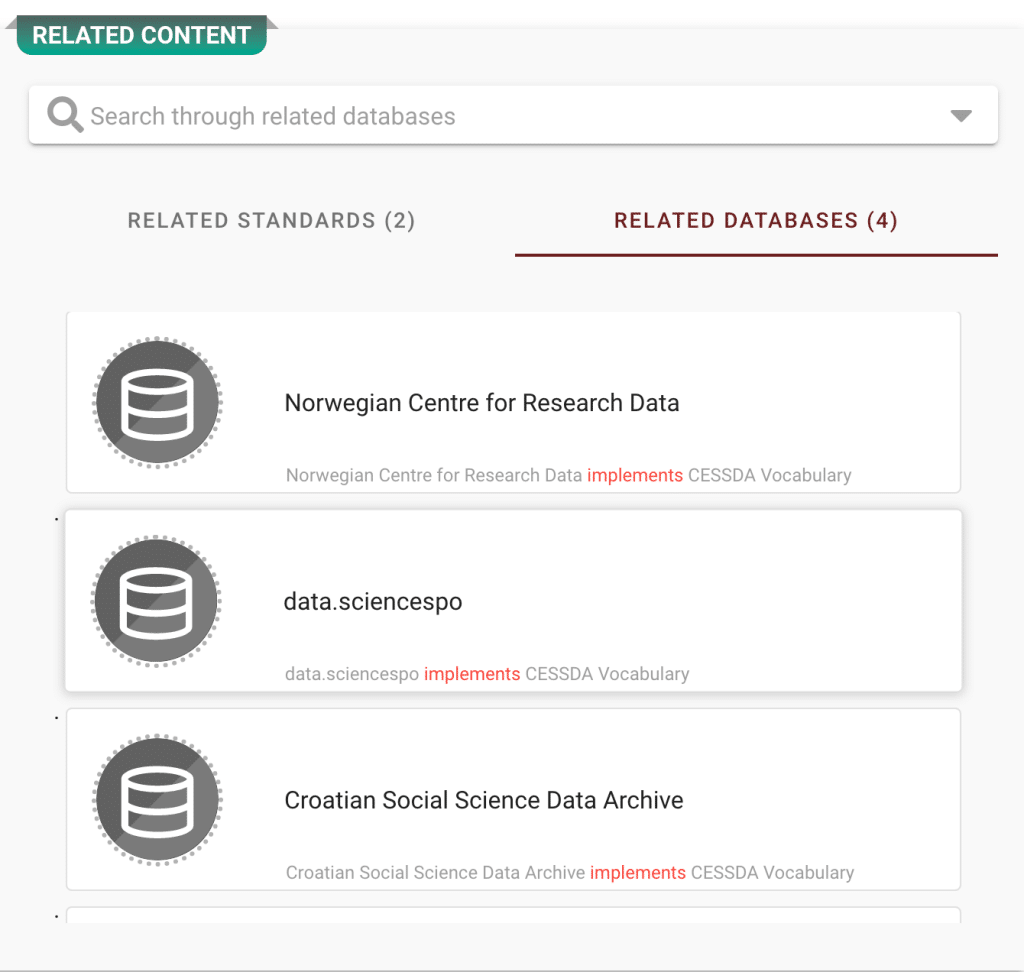
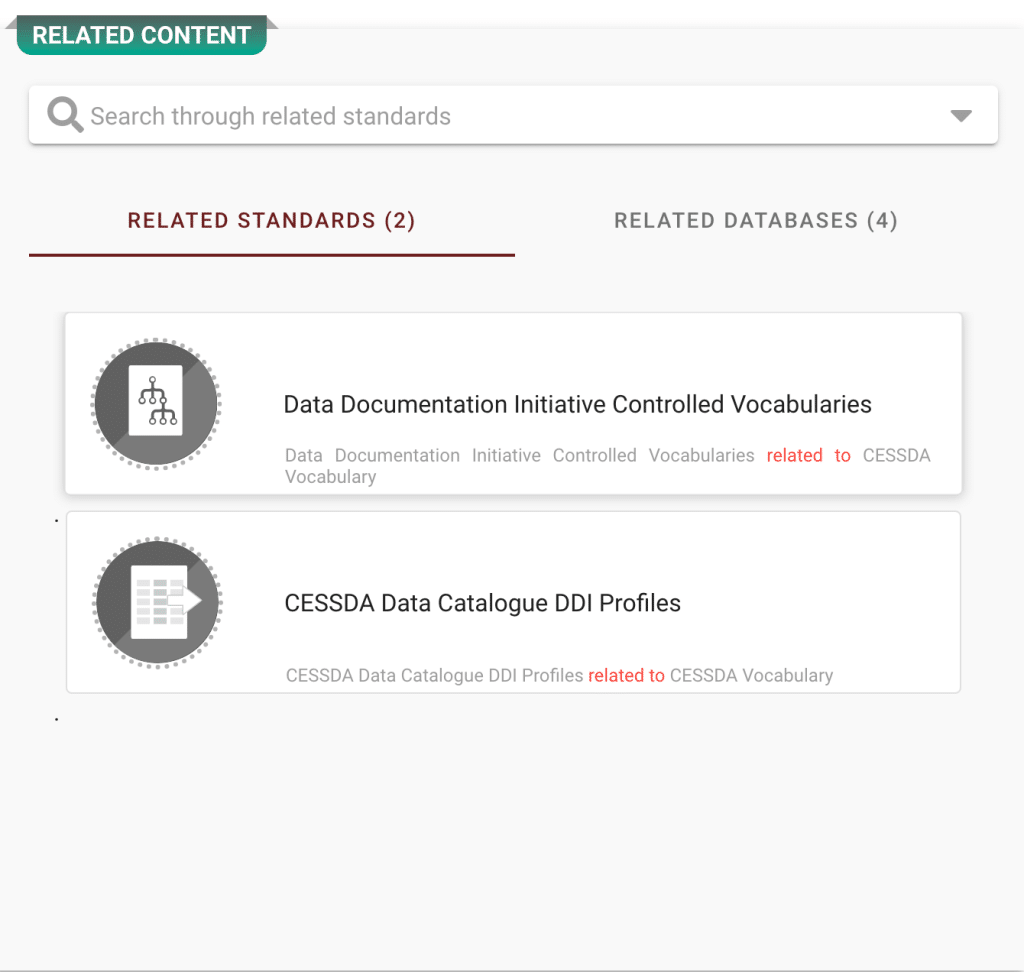
How can FAIRsharing support researchers?
FAIRsharing can support social sciences researchers in different ways and can potentially be used at different stages of the research lifecycle, for example before the data publications, or during the creation of a DMP.
In particular we suggest that FAIRsharing can be useful to social science researchers to:
- Access data accessibility policies for major academic publishers. The results can be refined according to the relevant research subject. Here is a link to the policies relevant to social sciences and humanities.
- To retrieve an updated list of databases on where to store data or where to retrieve research data and collections. Similarly to the “policies” tab above, databases can also be filtered according to the discipline. Here is a link of databases that are relevant to the social sciences and humanities.
- Look up disciplinary standards.
Through the faceted search on the left the researcher can select the discipline. There is a possibility to choose “humanities and social sciences” and then refine to “social sciences”. A first search retrieved 50 resources describing standards in use within the social sciences.
Get involved!
FAIRsharing, in collaboration with RDA and EOSC, has recently announced the launch of the FAIRsharing Community Curator Programme. Community experts are selected to co-curate certain knowledge areas within FAIRsharing. More information on this programme can be found here.
Conclusions
Researchers and data support professionals have a responsibility to ensure that the data they produce and share are FAIR. “Acknowledging that the ecosystem of guidance and tools is still work in progress, it is essential that researchers develop or enhance their research data management skills, or seek the support of professionals in this area” [1]. FAIRsharing can definitely support researchers in this task!
Do you have comments or questions, or do you have experience with FAIRsharing that you would like to share? Let us know via fairsupport@odissei-data.nl.
References
[1] Sansone, SA., McQuilton, P., Rocca-Serra, P. et al. FAIRsharing as a community approach to standards, repositories and policies. Nat Biotechnol 37, 358–367 (2019). https://doi.org/10.1038/s41587-019-0080-8
[2] https://fairsharing.org/ [last accessed on 12.01.2023]
[3] Consortium of European Social Science Data Archives (CESSDA): https://www.cessda.eu/ [last accessed on 23.01.2023]
